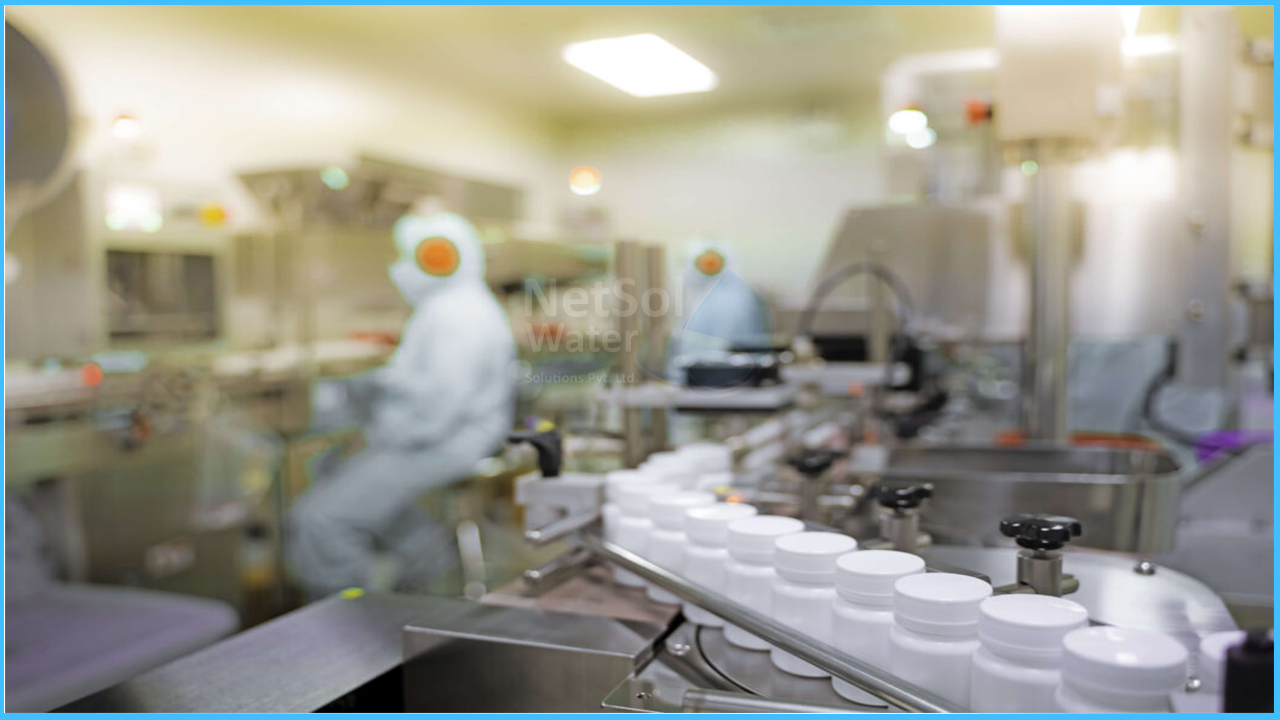Pharmaceuticals Wastewater treatment
Pharmaceuticals perform an important role in the treatment and prevention of disease in both humans and animals. Because they are designed to be highly active or interact with receptors in humans and animals, or to be toxic to many infectious organisms, they may have unintended consequences for animals and microorganisms in the environment. Traditional systems that use an activated sludge process are still widely used for wastewater treatment, primarily because they produce effluents that meet required quality standards (suitable for disposal or recycling) at reasonable operating and maintenance costs.
Pharmaceutical compounds are generally manufactured in batch processes, resulting in the presence of a wide range of products in wastewaters generated in various operations where copious amounts of water are used for rinsing of solid cake, extraction, or equipment washing. In general, this wastewater contains:
- A high organic matter content, a large portion of which is easily biodegradable (alcohol, acetone, etc).
- Organic compounds that degrade slowly and refractory substances (aromatic compounds, chlorinated hydrocarbons, etc).
- Compounds that inhibit and are toxic (antibiotics).
- Surfactant-containing soaps and detergents.
However, it has been demonstrated that this type of treatment has a limited ability to remove pharmaceuticals from wastewater.
TWO DIFFERENT SOURCES
The presence of pharmaceutical compounds in drinkable water arises from two sources:
- 1. pharmaceutical industry production processes and,
- 2. common use of pharmaceutical compounds,
This results in their presence in urban and farm wastewaters. The wastewaters produced during various processes in the manufacture of pharmaceuticals and drugs contain a diverse range of compounds.
DIFFERENT TREATMENT TECHNIQUES
Industry requires the reuse of water after the removal of contaminants, whether pharmaceuticals or otherwise. Given the scarcity of water resources, it is critical to comprehend and develop methodologies for the treatment of pharmaceutical wastewater as part of water management.
Different treatment techniques are: -
Activated sludge biological process: The most versatile and widely used biological treatment process is probably activated sludge. Even though the process is suitable for all climates, the treatment capacity will be reduced in colder environments. Activated sludge processes are typically used after primary treatment and, in some cases, followed by a final polishing step as part of a complex treatment system.
Anaerobic Digestion Process: The benefits of using anaerobic digestion are numerous, it can withstand high organic loading, produces less sludge, and has lower operating costs. Mechanical steam compression vacuum evaporators and advanced oxidation processes are other treatment options.
Moving Bed Biofilm Reactor Process: Moving Bed Biofilm Reactor processes self-maintain an optimal level of productive biofilm, the treatment is cost effective and requires little maintenance. Unlike activated sludge systems, MBBR systems do not require sludge recycling. The use of MBBR as a retrofit increases the capacity of the existing plant.
Effluent from various sectors of active pharmaceutical ingredients (API), bulk drugs, and related pharmaceutics that use large amounts of water is analysed, and strategies are proposed to recover the valuable compounds to a large extent, and finally, the diagnosis of very dilute but harmful wastewaters is discussed. There is no single technology capable of completely removing pharmaceuticals from wastewater. The use of conventional treatment methods in conjunction with membrane reactors and advanced posttreatment methods to create a hybrid wastewater treatment technology appears to be the best option.




